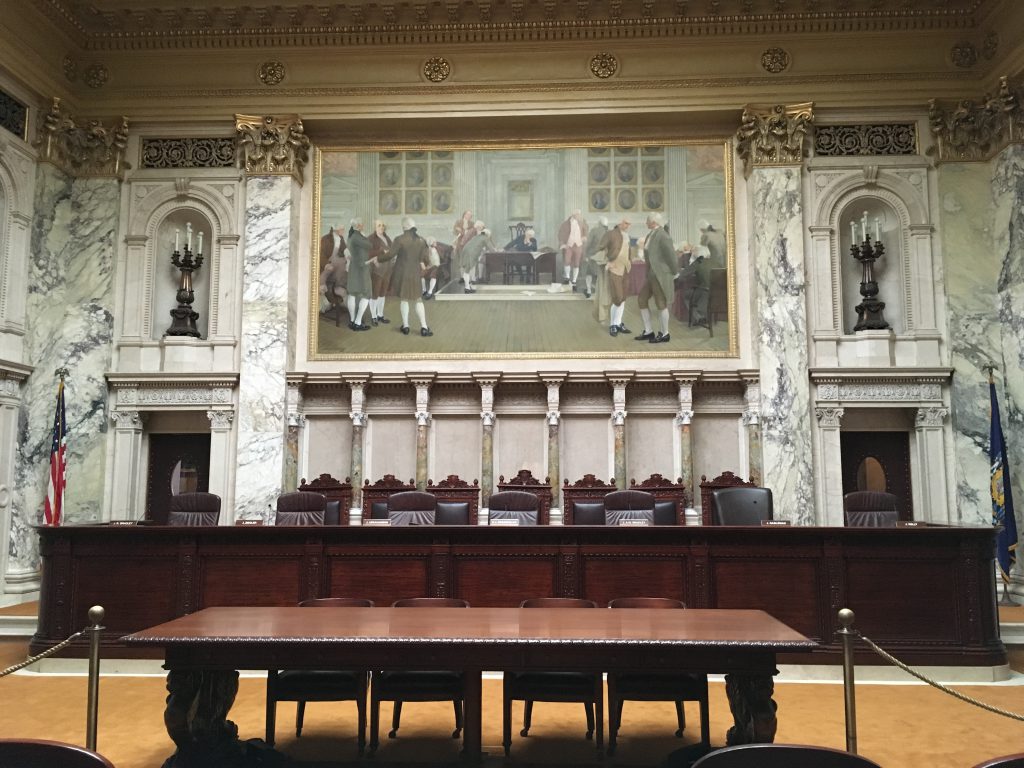High Court Asked To Remove Eviction Court Records After One Year
Legal aid lawyers say landlords use records to exclude prospective tenants.
Lawyers who represent low-income Wisconsin residents are asking the state Supreme Court to remove most eviction cases from court records after one year.
Landlords use those records to exclude prospective tenants, says Korey Lundin, an attorney with Legal Action of Wisconsin. That happens even if the case is dropped without a court-ordered eviction, he says — which is what happens in more than four out of five cases that are filed, according to data compiled by the Wisconsin Department of Administration.
Even though the majority of eviction cases never get that far, “under Wisconsin law it’s explicitly legal for landlords to refuse to rent to anybody if an eviction was filed against them,” Lundin says, regardless of how the case turned out. “Landlords will still use the [court] record to refuse to rent to somebody.”
Lundin and Legal Action have filed a rules petition with the state Supreme Court to revise the court’s current retention rules for court records. If adopted, the proposal would call for removing eviction court records “[one] year after entry of final order or judgment for all eviction cases in which no judgment for money is entered against any party, including contested cases, stipulated dismissals, and default judgments.”
The proposed rule is not directed at the court system’s online records display, but the records themselves. Simply removing a filing from the website display “is not adequate to address our concerns, because the actual court record remains for 20 years,” said Lundin.
The memo points to research showing that evictions are disproportionately filed against people of color: “In Wisconsin, the eviction filing rate against Black women is over two times the rate against white renters.” For the prospective tenant, “any whiff of an eviction record impairs a renter’s ability to secure safe and stable housing.”
An attorney representing a Milwaukee-area landlord association says his clients will oppose the proposed Legal Action rule change. “We do not want to see the record retention … reduced to only one year,” says Heiner Giese, the lawyer for the Apartment Association of Southeastern Wisconsin.
Giese says the landlord’s group did its own one-month study of Milwaukee County eviction cases in December 2019, and its findings did not match the Department of Administration’s records. Out of 1,101 evictions that month, just under 51% of eviction cases were dismissed. More than 42%, however, resulted in a court order evicting the tenant.
In addition, Giese says, cases in which a tenant did not owe rent when the eviction case was filed “are very, very rare.” Landlords, he says, should be able to know if a person has repeatedly been named in eviction filings, even if that person ultimately paid up, just as repeatedly failing to pay a credit card on time damages a person’s credit rating.
Bill Lueders, president of the Wisconsin Freedom of Information Council, says the organization is aware of the petition and plans to discuss it at the organization’s quarterly meeting this month.
Lueders calls removing court records — rather than just taking them down from the court system’s online portal — “a pretty big step” that had prompted some concern within the council.
“We are taking this seriously and trying to be open to argument,” Lueders says. “There are legitimate public interests on both sides of this proposal.”
Legal aid lawyers want most eviction court records removed after one year was originally published by the Wisconsin Examiner.






















